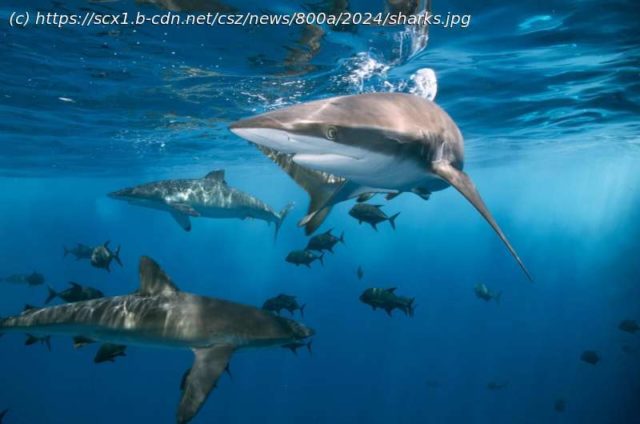There are more than 500 species of sharks in the world’s oceans, from the 7-inch dwarf lantern shark to whale sharks that can grow to over 35 feet long. They’re found from polar waters to the equator, at the water’s surface and miles deep, in the open ocean, along coasts and even in some coastal rivers.
There are more than 500 species of sharks in the world’s oceans, from the 7-inch dwarf lantern shark to whale sharks that can grow to over 35 feet long. They’re found from polar waters to the equator, at the water’s surface and miles deep, in the open ocean, along coasts and even in some coastal rivers.
With such diversity, it’s no surprise that sharks serve many ecological functions. For example, the largest individuals of some big predatory species, such as tiger and white sharks, can have an oversized role in maintaining balances among species. They do this by feeding on prey and sometimes by just being present and scary enough that prey species change their habits and locations.
In a newly published study, colleagues and I surveyed decades of research on sharks’ ecological roles and considered their future in oceans dominated by people. We found that because sharks play such diverse and sometimes important functions in maintaining healthy oceans, their current decline is an urgent problem. Since 1970, global populations of sharks and rays have decreased by more than 70%.
People are killing many types of sharks at unsustainable rates, mainly through overfishing. We see a need for nations to rethink where and how to conserve sharks for healthy oceans.
Along the remote coast of Western Australia, more than two decades of work shows that the mere presence of tiger sharks shapes the entire seagrass ecosystem by changing where and how big grazers, such as sea turtles and sea cows, feed.
Having tiger sharks nearby protects wide swaths of seagrass from being overgrazed, allowing it to grow into thick underwater meadows that provide habitat for juvenile fish and shellfish. These species are important food for other animals and for humans.
A healthy seagrass bed in Shark Bay, Western Australia, protected from overgrazing by the presence of tiger sharks.






